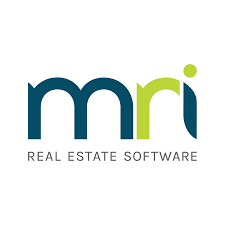Top Data Management Softwares
Data Management software serves as a vital tool for organizations seeking to organize, store, and access vast datasets efficiently. By enabling streamlined data handling, these solutions support seamless data integration, ensuring information remains both accessible and secure. Users can automate data workflows, enabling efficient data analysis and better decision-making. This software powers effe... Read More
129 companies found
Product Description
LiveRamp is a platform designed to help businesses make sense of their customer data. If you're managing a company that collects information about its customers, then LiveRamp might be what you need to turn that data into something actionable. Essentially, LiveRamp allows companies to gather data from multiple sources and join it together into a comprehensive view. This means you can merge online... Read More
Users
- • No Data
Industries
- • No Data
Market Segment
- • No Data
MRI Software
Product Description
MRI Software is a reliable and comprehensive solution tailored for real estate management. With its user-friendly interface and a wide range of features, MRI Software makes it easier for property managers to handle the day-to-day tasks involved in running residential and commercial properties. One of the key benefits of MRI Software is its flexibility. Whether you oversee a small portfolio of ren... Read More
Users
- • No Data
Industries
- • No Data
Market Segment
- • No Data
Product Description
Cohesity is designed to simplify how businesses manage, protect, and gain insights from their data. What sets Cohesity apart is its comprehensive approach to dealing with data scattered across different systems and platforms, including both on-site and in the cloud. Imagine having one user-friendly system that lets you handle various tasks like data backup, disaster recovery, and file storage wi... Read More
Users
- • No Data
Industries
- • No Data
Market Segment
- • No Data
Product Description
Apollo.io is a versatile sales intelligence platform designed to help businesses grow by enabling their sales teams to reach better prospects and close deals. Essentially, if you're looking to streamline your sales process, Apollo.io could be what you need. It combines prospecting, engagement, and workflow automation, allowing salespeople to focus more on building relationships and less on repetit... Read More
Users
- • No Data
Industries
- • No Data
Market Segment
- • No Data
Product Description
Tealium is a company that offers solutions to help businesses manage and make sense of their customer data. If you're a business owner or work in marketing, you probably know how important it is to understand who your customers are and what they want. Tealium helps streamline this process by bringing all your customer data together in one place, making it easier for you to use that data effectivel... Read More
Users
- • No Data
Industries
- • No Data
Market Segment
- • No Data
Product Description
Actifio is a software company that focuses on simplifying data management for its customers. They provide cloud data management services tailored to make data easier to access, manage, and protect. For businesses, managing data efficiently is often a tough task, especially when it comes to backing up, recovering, and making data available across different platforms. Actifio aims to streamline thes... Read More
Users
- • No Data
Industries
- • No Data
Market Segment
- • No Data
Product Description
Alation is a software designed to help organizations streamline their data management and boost productivity. It provides a unified platform where teams can easily find, understand, and collaborate on data. This means less time spent searching for information and more time spent making data-driven decisions. The platform acts like a smart catalog for your data, gathering information from various ... Read More
Users
- • No Data
Industries
- • No Data
Market Segment
- • No Data
Product Description
Ataccama is a software company focused on providing solutions for data management, helping organizations ensure their data is accurate, consistent, and ready for use. Designed for businesses of all sizes, Ataccama's tools make it easier to manage data across various platforms without needing deep technical knowledge. Their product suite includes options for data quality, master data management, ... Read More
Users
- • No Data
Industries
- • No Data
Market Segment
- • No Data
Treasure Data
Product Description
Treasure Data is a customer data platform designed to help businesses manage and make the most out of their data. It simplifies the way companies collect, unify, and make sense of customer information from various sources. If you’re a business looking to improve how you handle customer data, Treasure Data might be the solution you need. This software allows you to gather data from multiple channe... Read More
Users
- • No Data
Industries
- • No Data
Market Segment
- • No Data
BladeLogic
Product Description
BladeLogic is a software company providing solutions to help businesses automate their data center and IT operations. This means instead of manually managing servers, applications, and networks, BladeLogic offers tools that can do these tasks for you. This can save companies time and reduce the chances of human error. Businesses can use BladeLogic software to manage large numbers of servers and a... Read More
Users
- • No Data
Industries
- • No Data
Market Segment
- • No Data
What is data management software and how does it work?
Data Management software is a crucial tool that helps organizations effectively store, organize, and manage their data. As businesses rely more heavily on data-driven decision-making, the need for robust Data Management software has become more pronounced. These tools serve as the backbone for ensuring that data integrity, security, and accessibility are not compromised, enabling efficient processing and analysis.
Definition of Data Management Software
At its core, Data Management software encompasses a suite of processes, practices, and tools designed to handle volumes of data accurately and efficiently. The primary objective is to facilitate the collection, storage, retrieval, and utilization of data across various platforms. This type of software ensures that data is consistent, accurate, and available for various business operations and decision-making processes.
Components of Data Management Software
Data Management software typically integrates several key components:
-
Data Storage and Retrieval: One of the fundamental functions is the ability to securely store data and ensure it can be reliably retrieved when needed. This involves managing databases that hold structured and unstructured data in formats that are easy to access.
-
Data Quality Management: Ensures that data remains accurate, consistent, and relevant. This includes cleaning and validating data to minimize errors and duplicates.
-
Data Security: Protects data from breaches, ensuring confidentiality and compliance with regulatory requirements. This includes access controls, encryption, and audit trails.
-
Data Integration: Allows the merging of data from different sources to provide a unified view. Effective integration ensures seamless data flow across disparate systems.
-
Data Governance: Establishes data policies and processes which ensure responsible data management and quality control. Governance encompasses data stewardship, compliance, and lifecycle management.
How Data Management Software Works
Data Management software typically works through a series of automated and manual processes that encompass:
-
Data Entry and Compilation: Data is collected from various sources and standardized before entering a central repository or database. This might involve manual entry, automated data extraction, or integration with other systems.
-
Data Organization and Indexing: Once compiled, data is organized into structure formats (such as tables or files) and indexed. This organization enables faster search and retrieval operations, optimizing the software's performance.
-
Data Maintenance: Ongoing maintenance involves correcting errors, updating records, and cleaning out obsolete data. Regular maintenance ensures that the data remains useful and relevant.
-
Data Reporting and Analysis: The software provides tools for data visualization and reporting, allowing users to generate insights and analytics. These insights become the basis for strategic business decisions.
Importance of Data Management Software
Data Management software underpins decision-making by ensuring data integrity and accessibility. By structuring and maintaining data appropriately, organizations can gain insights into operational efficiencies, customer preferences, and market trends. This becomes critical in crafting strategies that align with business objectives.
Data Management software plays a vital role in balancing operational needs with data governance and compliance requirements. By streamlining complex data processes, it supports robust business intelligence activities, thereby influencing informed decision-making and strategic growth.
What are the key features to look for in data management software?
When evaluating Data Management software, several critical features distinguish effective tools from the rest. Managing data efficiently involves processes like storage, retrieval, security, compliance, and more. Here are essential features you should look for:
Data Integration Capabilities
Data Management software must be capable of integrating with various data sources and systems. This includes different databases, cloud services, and APIs. The goal is seamless data flow across an organization, ensuring that data from multiple sources is aggregated effectively and in real-time.
Scalability
Data Management software should be scalable to meet growing data needs. As your data volume increases, the software must handle larger datasets without a drop in performance. Scalability ensures long-term utility and supports business growth.
Data Security
Security is paramount when dealing with sensitive information. Look for software that offers robust encryption, user authentication, and access controls. These features protect data from unauthorized access and potential breaches.
Compliance and Governance
With regulations like GDPR and HIPAA, compliance is crucial. Data Management software should facilitate adherence to industry regulations by providing audit trails, privacy controls, and consent management. Proper governance ensures data integrity and accountability.
Data Quality Management
Poor data quality can lead to inaccurate insights and decisions. The software should have tools for cleaning, validating, and enriching data. Effective data management involves eliminating duplicates and correcting inconsistencies, thereby enhancing data reliability.
User Accessibility and Collaboration
Software with a user-friendly interface allows non-technical users to access and manipulate data. Features enabling collaboration across departments boost productivity, ensuring everyone has the information they need when they need it.
Backup and Recovery
Data Management software must offer robust backup solutions to prevent data loss due to system failures or cyberattacks. Quick recovery processes ensure business continuity and minimize downtime.
Performance and Optimization
Software should provide efficient data processing and optimization capabilities. This involves indexing, partitioning, and caching mechanisms to enhance speed and response times when accessing and querying large datasets.
Reporting and Analytics
Built-in analytics and reporting tools are crucial for deriving insights. These features allow users to visualize data, track trends, and generate reports, thereby facilitating informed decision-making processes.
Workflow Automation
Automation of repetitive data tasks saves time and reduces errors. Data Management software with automation features streamlines data processing tasks, such as data entry, transformation, and migration.
Customization and Flexibility
The ability to customize the solution to fit specific organizational needs is essential. Flexible Data Management software allows adjustments in workflows, user permissions, and interfaces, ensuring that the tool aligns with business objectives.
Interoperability
The chosen software should work well with existing business applications. Interoperability ensures smoother operations and maximizes the value derived from other tools and systems used within the organization.
In conclusion, these features are critical when selecting Data Management software, as they ensure efficient, secure, and compliant data handling. Consider your organization’s specific needs and assess the software’s ability to meet these requirements effectively.
How can data management software improve data security?
Centralized Data Repository
Data Management software often provides a centralized repository for storing and managing data. This centralization allows organizations to implement and enforce security policies more effectively. With data stored in a single location, it is easier to monitor access, track changes, and ensure compliance with data security policies. Centralized data repositories reduce the risk of data silos and unauthorized data distribution.
Access Controls
A key feature of Data Management software is the ability to define and enforce access controls. Software solutions allow organizations to set permissions at various levels, such as user, group, or role-based access. These controls ensure that only authorized personnel have access to sensitive information. By setting precise access controls, Data Management software mitigates the risk of unauthorized data access and potential data breaches.
Data Encryption
Data Management software often includes encryption capabilities. By encrypting data at rest and in transit, it secures sensitive information from unauthorized access and cyber threats. Encryption transforms readable data into an unreadable format, accessible only to those possessing the decryption key. This layer of security is vital for protecting data from potential interception or unauthorized access.
Data Masking and Anonymization
To further secure data, Data Management software can employ techniques like data masking and anonymization. Data masking replaces sensitive data with fictional characters, ensuring that the data remains secure while still usable for testing or analysis. Anonymization removes identifiable information, protecting individual privacy while maintaining the usefulness of the data. These methods reduce the risk of exposing sensitive information during data processing or sharing.
Audit Trails and Monitoring
Data Management software enhances security through comprehensive audit trails and monitoring capabilities. By logging all data access and modifications, it enables organizations to track and review usage patterns, identify anomalies, and detect potential security breaches. Real-time monitoring features alert security teams to suspicious activities, allowing prompt responses to potential threats. This proactive approach significantly reduces the risk of data breaches.
Data Backup and Recovery
Data Management software plays a crucial role in implementing effective data backup and recovery strategies. Regular backups ensure that data can be restored in case of accidental deletion, corruption, or security incidents. Robust recovery mechanisms reduce downtime and mitigate the impact of cyberattacks, such as ransomware, ensuring business continuity. Data Management software helps in maintaining data integrity and availability through its backup and recovery solutions.
Compliance with Regulatory Standards
This software supports compliance with various regulatory standards and industry best practices. By automating compliance processes, it ensures that data security measures meet the requirements set by regulations like GDPR, HIPAA, and CCPA. Compliance not only protects sensitive data but also prevents legal penalties and reputation damage.
Data Loss Prevention
Data Management software can implement Data Loss Prevention (DLP) measures to identify, monitor, and protect sensitive data. DLP tools prevent unauthorized data transmission and flag potential vulnerabilities. They provide an additional layer of security by ensuring that sensitive information does not leave the organization unprotected. By integrating DLP strategies, Data Management software helps maintain data confidentiality and integrity.
What benefits do businesses gain from using data management software?
Efficient Data Organization
Data Management software provides businesses with efficient ways to organize their data. This software creates structured environments where data can be sorted, categorized, and stored systematically. Efficient data organization allows businesses to retrieve information rapidly, minimizing time spent on searching and reducing operational bottlenecks. Such systems assist in unifying multiple data sources, thereby enhancing the overall data quality and consistency across the organization.
Enhanced Data Security
Security is paramount for any business dealing with sensitive information. Data Management software offers advanced security protocols to protect data from unauthorized access, breaches, and other cyber threats. Features such as encryption, access controls, and user authentication ensure that data remains secure. Implementing these solutions helps businesses safeguard information while complying with relevant industry regulations and standards.
Improved Decision Making
Data Management software improves the quality of decision-making in businesses by providing accurate and timely access to relevant data. With built-in analytical tools, businesses can analyze large data sets and derive insights. These insights enable informed decisions that can lead to improved strategic planning and investment opportunities. As a result, companies can better understand market trends, customer behavior, and operational efficiencies.
Scalability and Flexibility
As businesses grow, their data needs can expand considerably. Data Management software offers scalability, allowing companies to increase their data storage and processing capabilities as needed. The flexibility of these systems means they can adapt to changing business requirements, such as market expansions or shifts in data volume, without significant disruptions. This adaptability ensures long-term viability and efficiency.
Collaboration and Accessibility
Data Management software enhances collaboration among team members by providing a centralized data repository. This centralized approach enables multiple users to access, edit, and share information, fostering teamwork and enhancing productivity. With cloud-based solutions, accessibility extends to remote working environments, supporting hybrid and mobile work models. Such access ensures that team members can collaborate from any location with ease.
Cost Efficiency
Implementing Data Management software can lead to significant cost savings for businesses. By automating data processes and reducing the need for manual data entry and reconciliation, these tools decrease labor costs. Additionally, the improved efficiency and reduced errors lead to lower operational expenses. By streamlining data processes, businesses can allocate resources more effectively, focusing on strategic initiatives and growth.
Consistency and Data Integrity
Data consistency and integrity are crucial for reliable business operations. Data Management software standardizes data entry, storage, and processing procedures, which reduces errors and redundancies. These systems employ verification processes to ensure data remains accurate and reliable over time. Consistent and trustworthy data empowers businesses to execute operations smoothly and maintain customer trust.
Regulatory Compliance
Staying compliant with various regulations is a significant aspect of data management. Data Management software helps businesses adhere to legal and industry-specific standards by implementing necessary compliance measures. These systems track changes, audit trails, and maintain detailed records ensuring that businesses meet obligations promptly and accurately.
Data Management software is instrumental for businesses seeking to optimize their data processes. These systems improve data organization, security, and decision-making, while offering scalability, collaboration, and cost-efficiency. Enhanced consistency and compliance further underscore the value of these solutions in managing and making the most of business data.
How does cloud-based data management software differ from on-premises solutions?
Deployment and Accessibility
Cloud-based Data Management software and on-premises solutions differ significantly in terms of deployment and accessibility. Cloud-based systems are hosted on the vendor’s servers and accessed via the internet. This allows users to access data from any location with internet connectivity, providing flexibility and remote access capabilities. On the other hand, on-premises solutions require physical infrastructure and are deployed on local servers within the organization's premises. This often limits access to those within the physical location, unless additional remote access configurations are implemented.
Cost Structure
The cost structure of Data Management software also varies between cloud-based and on-premises solutions. Cloud-based systems typically operate on a subscription model, which may involve monthly or annual fees, including maintenance and updates. This reduces the need for significant upfront investments in hardware and software. Conversely, on-premises solutions usually demand a substantial initial investment in infrastructure, along with ongoing maintenance and upgrade costs borne by the organization.
Scalability
Scalability is another aspect where cloud-based Data Management software outshines on-premises solutions. Cloud platforms offer elastic scalability, allowing organizations to easily adjust resources and storage based on current needs without massive investments in hardware. This dynamic scalability is challenging for on-premises systems, where adding capacity often involves procuring additional hardware and upgrading existing systems.
Maintenance and Updates
Cloud-based Data Management software relieves organizations of the burden of maintaining the systems and applying updates. The service provider handles these tasks, ensuring software remains up-to-date without downtime or disruption to users. On-premises solutions, however, require in-house IT teams to oversee maintenance, apply patches, and manage updates, potentially leading to increased workforce demands and operational costs.
Security Considerations
In terms of security, cloud-based Data Management software often offers comprehensive security measures, such as data encryption and regular security audits. Cloud service providers invest heavily in security to comply with industry standards and protect their clients' data. However, organizations concerned about data privacy may prefer on-premises solutions, as these systems grant complete control over data security protocols. On-premises setups allow custom security configurations aligned with specific organizational policies.
Integration and Customization
Integration capabilities can significantly differ between cloud-based and on-premises Data Management software. Cloud systems may provide robust APIs and seamless integration with other cloud applications and services, enhancing overall data ecosystem interoperability. On-premises solutions might face challenges in integrating with cloud applications unless specific configurations are applied. Customization in cloud solutions may be limited compared to on-premises systems, where organizations might have the flexibility to tailor the system architecture and functionalities as required.
Performance and Reliability
The performance and reliability of Data Management software can also vary based on the deployment model. Cloud-based solutions generally rely on the cloud provider’s infrastructure reliability, ensuring data is accessible with minimal downtime. Enterprises with high reliability demands might opt for on-premises solutions, where performance metrics can be closely monitored and controlled by internal teams. Moreover, cloud-based models may be more susceptible to internet connectivity issues, impacting performance, while on-premises systems might require intensive monitoring to prevent system breaches and downtime.
The choice between cloud-based and on-premises Data Management software depends on organizational needs, budget constraints, and IT strategy. Understanding the key differences is crucial for making informed decisions that align with business objectives.
Why is Data Management Software Important for Compliance and Regulation?
Data Management software serves a critical role in ensuring compliance and regulation across various industries. Regulatory bodies impose strict guidelines on data handling, necessitating robust systems to manage data responsibly.
Ensures Data Accuracy
Maintaining data accuracy is crucial for meeting regulatory requirements. Inaccurate data can lead to non-compliance and severe legal consequences. Data Management software helps keep data correct and updated, which is vital for producing accurate reports. These reports are often required by regulatory entities to verify that companies adhere to prescribed standards.
Facilitates Data Organization
Regulations often demand that companies have organized data systems. Disorganized data can lead to inefficiencies and difficulties in audits and examinations. Data Management software methodically organizes data, ensuring that it can be easily retrieved and measured against compliance standards. This organization aids businesses in meeting regulatory requirements and minimizing potential risks.
Enhances Data Security
Many regulations focus on data security, necessitating systems that protect sensitive information. Data Management software supports this by implementing robust security measures. These systems manage user access and protect against unauthorized use, ensuring compliance with data protection laws. Secure data handling helps prevent breaches, which could otherwise lead to non-compliance and hefty fines.
Provides Audit Trails
Regulatory compliance often requires the ability to show detailed audit trails. These trails verify the processes and changes data undergoes within an organization. Data Management software offers reliable audit logs that record every data transaction. This feature is essential for demonstrating compliance to regulatory entities and safeguarding against potential disputes or fines.
Enables Data Availability and Access
Regulations frequently stipulate that data must be accessible to certain stakeholders and regulatory bodies. Ensuring timely and efficient data access is a complex task without the proper tools. Data Management software ensures that authorized users can access required information. This access is crucial for evaluations and assessments that form a part of regulatory processes.
Supports Data Integration
Compliance and regulation often demand that data from various sources be consistent and integrated. Data Management software streamlines the integration of disparate data, creating a cohesive and unified dataset. This consistency is necessary to meet regulatory conditions and avoid discrepancies that could impact compliance.
Aids Compliance Tracking
Tracking compliance involves continuous monitoring of data activities and processes. Data Management software aids in keeping track of compliance metrics, ensuring that businesses adhere to regulations consistently. This monitoring helps businesses quickly identify any deviations and take corrective action before they become issues.
Adapts to Changing Regulations
Regulatory environments evolve, requiring businesses to adapt their data practices. Data Management software provides the flexibility needed to adjust to new regulatory demands. It enables quick configuration changes to ensure ongoing compliance with any new data regulations.
In summary, Data Management software is indispensable for maintaining compliance and regulation. Its ability to manage data accuracy, security, access, and other essential elements plays a significant role in helping organizations meet regulatory requirements efficiently and effectively.
What factors should be considered when choosing data management software for a business?
Choosing the right Data Management software for your business is a critical decision that can significantly impact your operations and data strategy. Here are key factors to consider when selecting a solution:
Scalability
- Growth Potential: Ensure the Data Management software can grow with your business. The ability to scale efficiently with increasing volumes of data is crucial. The software should accommodate future expansion in users, data variety, and complexity.
Integration
- Compatibility: Evaluate how well the software integrates with existing systems and other applications in your business environment. Seamless integration can streamline operations and enhance productivity by facilitating data sharing across platforms.
Usability
- User-Friendly Interface: Opt for a solution with intuitive navigation and ease of use. Training resources and user support should be accessible to reduce the learning curve and ensure teams can efficiently utilize the software.
Security
- Data Protection: Security is paramount. Look for Data Management software that offers robust security features such as encryption, access controls, and regular security audits. Ensuring protection against data breaches and unauthorized access is essential for compliance and trust.
Data Quality Features
- Cleansing and Validation: Consider software that offers functionalities for data cleansing, validation, and consistency checks. High-quality data is vital for accurate analysis and decision-making.
Performance
- Efficiency: Assess the software’s performance regarding data processing speed and reliability. Efficient performance ensures that your data operations, like backups and queries, run smoothly without delays.
Cost
- Budget Alignment: Analyze the total cost of ownership, including licensing, subscription fees, and maintenance costs. Make sure the investment aligns with your budget and offers value for money.
Customization
- Tailor-Made Solutions: Look for software that allows customization to meet specific business requirements. The ability to tailor functionalities to suit your operational needs can enhance effectiveness.
Compliance
- Regulatory Requirements: It is crucial to select Data Management software that helps you comply with industry-specific regulations, such as GDPR, HIPAA, or CCPA. This ensures that your business remains compliant with legal standards.
Support and Maintenance
- Vendor Support: Evaluate the support and maintenance options provided by the vendor. Reliable customer support can help resolve issues promptly and maintain operational continuity.
Backup and Recovery
- Disaster Recovery: Consider the backup and recovery capabilities of the software. A reliable disaster recovery process is essential to protect against data loss due to unforeseen circumstances.
Flexibility
- Adaptability: The software should support various data types and sources to accommodate diverse data management needs. Flexibility ensures that the software can adapt to changes in data strategies.
Analytics and Reporting
- Data Insights: Choose software that offers comprehensive analytics and reporting capabilities. Access to insightful data analytics can drive better business decisions and strategy formulation.
Taking these factors into account will aid in selecting effective Data Management software that enhances your business productivity, ensures data integrity, and supports overall data strategy objectives. These considerations form the foundation for optimal software selection, aligning technological capabilities with business requirements.









